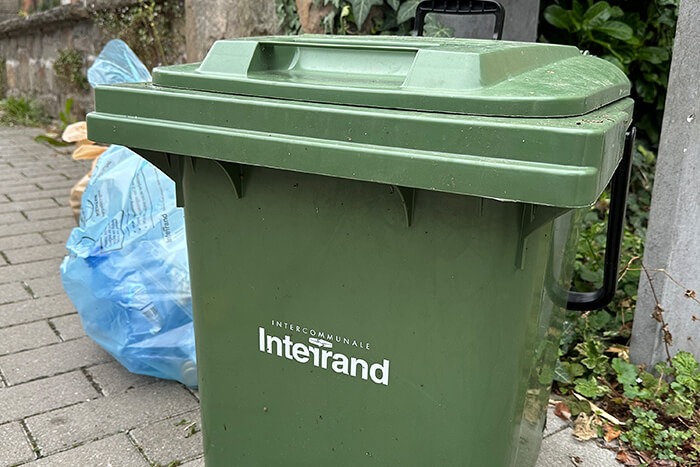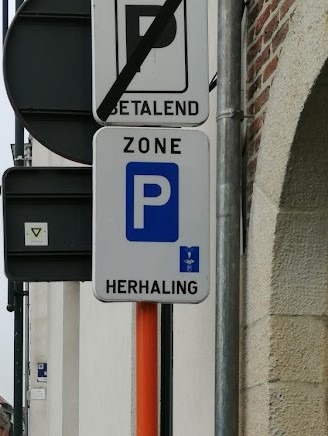
Diftar in Tervuren: an unfair, costly, and visionless reform
On August 28, 2025, the Tervuren municipal council approved the implementation of the Diftar system based on weight for household waste collection. From 2026, each household will have to present its waste in a container equipped with a chip and a weighing system. The bill will no longer be calculated based on the number of bags purchased, but on the exact weight of residual and organic (GFT) waste presented for collection.
The majority presented this reform as an “inevitable progress” and a “responsible ecological choice.” However, the reality is quite different: the project was adopted hastily, without a solid business case, without transparency regarding its actual cost, and against the opinion of part of the majority itself.
Promises put forward by the college
Supporters of Diftar put forward several arguments that deserve to be recalled before confronting them with reality:
- Reduction of tonnage: elsewhere in Flanders, switching to a weight-based system would have led to a 20–30% reduction in residual waste volume.
- Polluter pays: each household pays according to what it throws away, which seems fairer than the current volume-based system.
- Cleaner streets: no more bags torn by animals; containers would limit nuisances and disorder.
- Management data: the system would provide detailed figures to improve the municipality’s waste plan.
However, these arguments are insufficient to conceal the enormous weaknesses of the project as decided in Tervuren.
A bill that explodes for households
Today, a family of five producing approximately 30 bags of 60 liters per year pays €51. Under Diftar, the same family, maintaining its current habits, will pay €232, or 4.6 times more.
Even assuming a reduction in tonnage (from 130 kg to 90 kg per person), the annual bill would remain €169, more than three times the current amount.
Majority officials dare to claim that “those who sort better will pay less.” This is false. In the best-case scenario, the bill will triple; in the worst, it will quintuple. The official discourse is a clumsy way of disguising a disguised tax increase.
Less service, more constraints
Paying more for less: this is what Diftar means for Tervuren residents.
- The collection frequency will be halved: once every two weeks instead of once a week.
- Residents of the town center will no longer have door-to-door collection; they will have to travel to underground containers. For elderly people or large families, this will be a heavy and unfair burden.
- Businesses, too, will have to adapt without any specific solution being provided.
The consequence is clear: households will pay much more for a service provided half as frequently.
Known and minimized risks
Many municipalities that have already implemented Diftar face problems that Tervuren pretends to ignore:
- Littering: illegal dumping increases when disposal becomes too expensive.
- Fraud: bags are placed in neighbors’ containers, easily identifiable by the address linked to the chip.
- Vandalized or stolen containers: each household will need to store a large, vulnerable bin. If the container is damaged or stolen, the households will once again foot the bill.
- Bad odors and pests: waste, especially organic, will ferment for two weeks before collection.
- Broken underground containers: when a collection point is out of service, residents have no alternative.
These risks are not hypothetical; they are documented elsewhere.
A divided majority, an unprecedented fact
During the vote on August 28, the N-VA, despite being part of the majority, expressed its disagreement. Its elected officials criticized the rising costs, the loss of service, and the system’s inefficiency. The result: a divided vote, with some N-VA members abstaining and others voting “out of loyalty,” without hiding their discomfort.
This is an unprecedented political fact: the majority has never before split over such an important issue. The reform was therefore adopted, but in a tense atmosphere and without consensus.
The blind spot: the total absence of a business case
Perhaps the most worrying point is this: the municipality embarked on this reform without any knowledge of its overall financial impact.
Today, Tervuren pays €2.8 million per year to Interrand for waste collection and treatment. During the debate, councilors asked how much would be saved by switching to Diftar. The college’s response was telling:
- No estimate is available.
- No financial simulation has been provided.
- The college admits that in the first years, the municipal bill will remain the same.
In short: municipal costs remain constant, while household costs skyrocket. The result: a double burden, with no guarantee of future savings.
Geoffroy de Visscher summarized it as follows: “We are embarking on a radical reform that disrupts the daily life of every citizen, without knowing whether it will yield anything.”
The N-VA added that even in the long term, the system is structurally more expensive: trucks are costlier, collection is slower, and staff must handle each bin. The promise of cost reduction for the municipality is therefore illusory.
A blatant fiscal injustice
Diftar places 85% of costs on households via fees, compared with only 15% financed from general tax revenues.
Yet waste collection is a basic municipal responsibility, which should be funded collectively rather than transformed into an indiscriminate “per-kilo tax.” This system is profoundly unfair: a modest family will pay the same per kilo as a wealthy one.
Ignored alternatives
For years, Tervuren Unie has advocated a reassessment of the partnership with Interrand. Other avenues exist:
- Interza (Zaventem, Wezembeek-Oppem): controlled costs, citizen satisfaction, flexible service.
- Bruxelles-Propreté: experienced public operator managing the capital and capable of offering tailored solutions.
- Private operators such as Veolia or Van Gansewinkel, capable of providing competitive and innovative solutions.
None of these options has ever been seriously studied. The current majority, like the previous one, has locked itself into a dependence on Interrand, accepting its choices without debate and refusing any competition.
Conclusion: an imposed reform, not a fatality
The Diftar system in Tervuren is not an ecological necessity, but an opaque and poorly prepared political choice.
- For citizens: an explosion in bills, reduced service, new constraints, and risks of fraud and littering.
- For the municipality: constant costs, no savings plan, and increased dependence on Interrand.
- For the majority: internal division revealed to the public, reflecting discomfort with a reform rejected by a large part of the population.
Tervuren Unie will continue to inform citizens and denounce this unfair policy. We advocate for a waste management system that is fair, transparent, competitive, and genuinely serves Tervuren households.


Thank you for this important reporting and well-researched article. Is there a way to stop the introduction of the Diftar system?
Hello. That’s an excellent question: the majority claims that there is no way back. We’ve found some irregularities in the decision process (basically the decision was made by people who weren’t mandated for that and they convinced the 3 communes that they could only accept the decision), but the legal analysis is still ongoing.